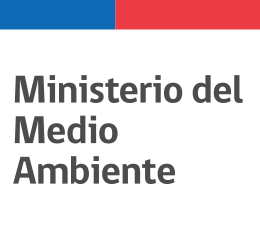Immediate Kid Scientist! A Scientific Consideration
Kids can be scientists too. So I'm going to explain why and then you can check out the amazing gallery of resources I've put together below.
First of all, what defines a scientist? Someone who observes nature and asks questions about what they see. That's what scientists do! Even chemists! Various chemical reactions occur in our Earth, and chemists observe these. They also dig a little deeper and figure out with scientific tools why these happen. And all this wouldn't happen if they didn't wonder why. You can try to best this theory with various other scientists but you'll see this is correct. But sometimes we forget this and think that scientists are only these chemists who have beakers of experiments. It might not seem like a lot, but it can really change the world, what scientists really do. But that's not for right now, you can check out more here: inaturalist.org/journal/iamsharkgirl
But does that mean that kids can be scientists? Yes, it does! You don't need a degree to be a scientist, so no colleges needed. And kids, as parents might know, are excellent at asking questions. They also are great observers–they have more time. Kids CAN be scientists! So, let's get straight to it and check out some resources they may enjoy.
Books: a great fictional book series for younger kids just beginning to read (or hear) chapter books is Zoey and Sassafras. Zoey and her cat care for injured magical animals, and there's plenty of science mixed in! They conduct experiments and go out in nature, maybe they'll even inspire your kids. The author, Asia Citro, also has some other great books for adults about getting kids off the screen and in nature.
Remember to introduce the scientific definitions/principles to them. Another great activity is to ask them to share everything they know about an animal, for example, sharks. Then ask them how they know that. Likely from articles, books, movies, and websites. But remind them that all information comes straight from the source. Eventually, you'll get way back there, and you'll see that people had to go out into nature and they saw the shark eat a smaller fish. They noted this. Then to prove that the shark species does indeed eat fish they went out many times to verify other sharks eating fish. They collaborated and shared their shark knowledge with the media. But kids can do this, too!
Activity: have them go outside for 5 minutes and write the temperature, date, time, and location. And they should observe the animals that are out there. They should write (and maybe draw) everything about the animal. After, have them tell you what they learned. From every experience, from even seeing an animal, they can learn something.
Activity: have them write everything they know about nature. Then all their questions.
Activity: every time your kids ask you a question, consider it for a moment. Ask them what they think. Can they test their knowledge? Does it make sense? If you do provide an answer key, make it insightful and don't make it just one word. Explain it.
Activity: let them log something on iNaturalist or model it on them.
Trip: Go to visit protected areas and aquariums. If they grow up with nature, they may love it and grow to protect it. Make sure to also go on cleanups in nature and in the neighborhood!
There are some amazing activities, trips, and books you may enjoy to do with kids. Make sure to never limit the possibilities of their becoming a scientist!....right now!



